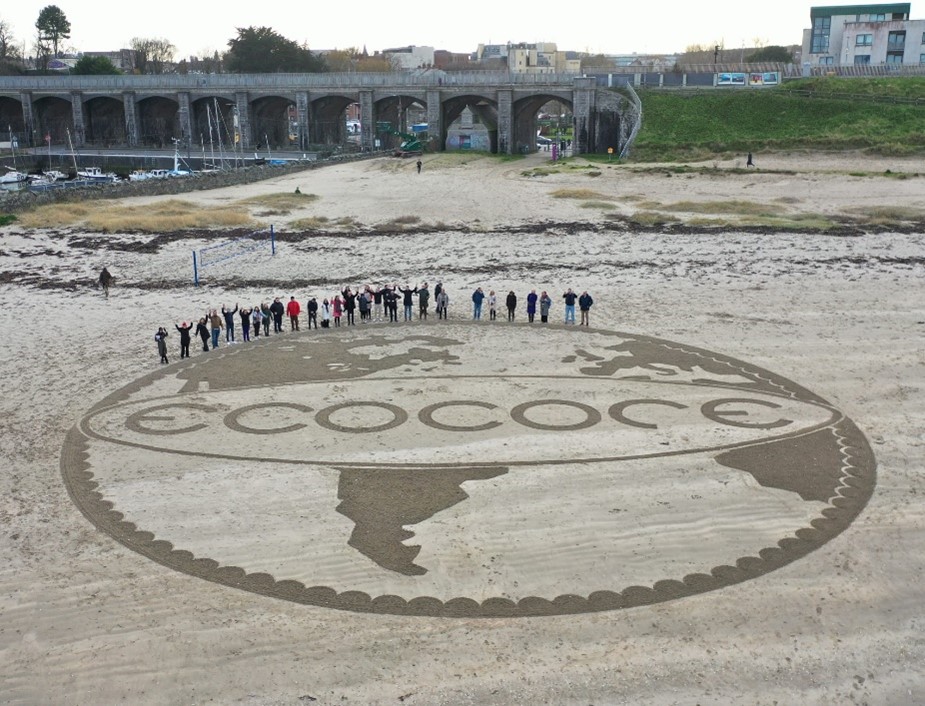As small cities, EcoCore partners face a particular set of challenges when it comes to transitioning to a green economy including for example access to finance, brain drain and infrastructural barriers. Other challenges include lack of critical mass, resistance to change and limited policy support. What sets EcoCore cities apart however is their location within strategic transport corridors – close to airports, ports, strategically important railway lines and motorways. This aspect places them at a competitive advantage when it comes to attracting industry. In addition, as small cities they have the opportunity of being closer to stakeholders on the ground and this advantage can be used to build a solid foundation for success.
The foremost challenge for EcoCore cities however will be to future proof their economic development plans and set conditions in place to ensure that they become the location of choice for new green businesses while supporting existing businesses in the green transition process. A powerful transition catalyst will be critical in achieving this aim. Working in an integrated manner with stakeholders from across sectors, at multiple levels and across boundaries, taking into account hard and soft investment requirements will be an essential ingredient for success.
This was the focus of discussions during an intense two day gathering of partners in the town of Balbriggan – home to lead partner Fingal County Council (Dublin). EcoCore partners from Dubrovnik, Ormož, Alba Iulia, Kekava, Santo Tirso, Pärnu, Villena and Tuusula joined Fingal County Council on 21st and 22nd November to reflect on the green transition challenges and opportunities in each of the partner cities, to agree the network work plan for the next two years and to peer review some of the EcoCore related activities and plans in Balbriggan.

Partners visited Balbriggan’s industrial zones, saw how the local team are rolling out active travel initiatives including behavioural change programmes in tandem with sustainable mobility infrastructure. They learned about Fingal County Council’s role in facilitating collaboration between businesses and education via their innovative skills strategy. Partners also reflected on the municipality’s role in a cross border strategic regional economic corridor strategy, their supports for women in enterprise and their citizen centred smart city initiatives promoting the green transition.

This meeting sets the tone for the network’s exchange and learning activities over the next two years. EcoCore’s tailor-made programme of transnational exchange and learning for partners and their stakeholders is aimed not only at overcoming barriers to the green transition in these small cities and towns but at positioning them as magnetic hubs of green economic development.
Throughout the activation phase partners have reflected on the role of municipalities in enabling the green industrial transition and have identified five key transition drivers on which to focus their attention. These include:
- Planning & Development for Green Industrial Transition
- Developing and nurturing the Innovation Ecosystem in support of the Green Transition
- The Municipality as Green Transition leader
- Supporting the Green Transition skills pipeline
- Branding and Marketing
These overarching themes will provide the framework for the exchange and learning programme over the next two years with study visits to each of the partner cities where practical examples of these transition drivers in action will be showcased and peer reviewed. The learning and exchange programme will be complemented by a series of online masterclasses focussing on topics such as funding and investment for small cities, CSRD and what it means for the green transition in businesses and cities, cleantech enabling the green transition and more. Partners will also showcase their work on the URBACT cross cutting themes of gender equality and the digital transition in a green transition context. The aim will be to build capacity on these topics, build momentum and inspire partner cities and their stakeholders to co-design related actions.
EcoCore partners want to harness the green transition to better integrate industry within society and the environment through shared value opportunities, improved ecosystems and urban fabric and innovative pathways for sustainable place-making.
The ultimate objective is to decrease greenhouse gas emissions, address climate change, limit environmental damage, and encourage the efficient utilization of resources. The goal is to create a more sustainable economy in partner cities that benefits both people and the planet.
By embracing the green industrial transition and through a partnership approach, EcoCore believes that cities and businesses can position themselves as front-running innovators, in the global effort to combat climate change and create a more sustainable future while offering a high-quality, attractive living and working environment for residents.
Watch this space!



